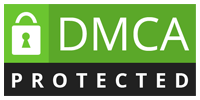Digital forensics is another branch of forensic science and is one of the best core jobs in cybersecurity. The demand for digital forensic analysts is growing these days continuously due to the increase in malware threats and attacks all over the internet.
Your role as a digital forensic analyst is to find/track and detect hackers and malware threats online. Like the FBI, you have to trace every single one of these threat spreaders with careful analysis and investigation, but this time, with your skills as an IT professional.
The role is also lucrative and has a lot of career advancement opportunities, which is why it’s perfect for those IT professionals who are willing to go beyond their current skill capacity to learn something new.
It’s the ideal learning curve for most professionals, and it pays a lot too, but the question remains: “How do you exactly become a digital forensic analyst?”
We know you’re curious because you’re willing to become one! That’s why we’re going to help you! To become one, you’ll need these top 5 skills that every digital forensic analyst should have.
Technical Expertise
Digital forensic analysts are technology-focused. Having high technical aptitude is already an advantage if you want the role. A digital forensic analyst should be tech-savvy to track cybercriminals professionally and detect malware threats and attacks beforehand.
If you’re working on various technical or digital platforms, from computers to mobile gadgets, you’ll need the skills to maneuver them all.
Always remember, if you possess top-quality technical management, you can easily identify and respond to cyberattacks and security breaches without pressure.
Analytical Talent or Skills
You’ll have to think like a detective to detect cybersecurity threats and attacks. You have to believe with high analysis in critical situations to solve a problem.
The whole process of deciphering cyber data to settle cases or issues dealing with cyber hackers or cybercriminals requires an advanced level of analytical skill. You’ll need fast and precise decision-making skills as always to become a good digital forensic analyst.
Comprehension in Cyber-Security
You’ll need to have proper comprehension when it comes to cybersecurity. Understanding the flow of cyber data is a good advantage for you.
You’ll need to know the latest cyber threats and schemes used by cybercriminals, because this will allow you to create countermeasures against them, giving you the upper-hand.
Overall, every digital forensic analyst is required to have an in-depth component of cybersecurity or information security.
Ample Knowledge in Law & Investigation
Of course, you’ll have to know the rules and guidelines in forensic investigation. Having ample knowledge of criminal law and investigation will be an added advantage.
But don’t worry, the job doesn’t require you to have an actual law degree or qualification. One of the best moves to gain knowledge about Law on Cybersecurity is through online reading and group discussions.
Good Communication Skills
Last but not least, you need to have at least good to excellent communication skills. You need to communicate with your team because, in this job, you won’t be working alone.
Communication skills in digital forensics are vital since you need to pass and receive technical information accurately and concisely in different levels of technical comprehension.
Bottom Line
To become a good digital forensic analyst, you’ll need to have these five skills, at least. These are just the basic requirements in becoming a digital forensic analyst, for there skills that you still need to learn along the way.
The most important thing that you must possess during the whole journey is the willingness to learn more. You have to be open to new knowledge because that will be your ticket to become a good digital forensic analyst.










